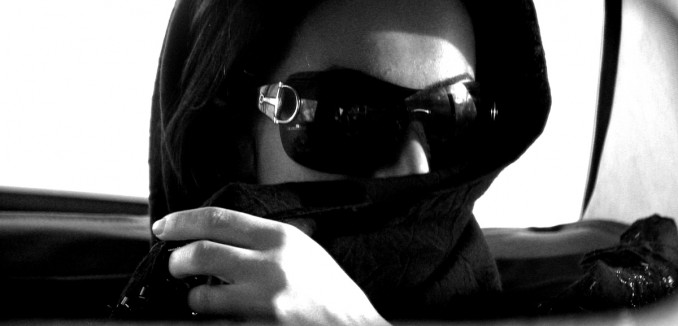The social networks in the Muslim world are full of references to the Iranian actress Narjes Mohammadi, after she refused to wear a full body cover during the festivities of a Shiite holiday last week.
The incident took place in Zadin Dasht, a city in the Iranian Fars province. As part of the annual celebration of the Shiite Ghadir holiday, Mohammadi was invited to participate in one of the ceremonies.
At the beginning of the event, an Imam of a local mosque made a speech and announced (Persian link) that the actress will soon come to the stage clad in a full body cover. He did not expect that this announcement would spark such a big fuss.
According to reports by Iranian activists on Facebook, once the actress heard the words of the Imam, she decided to boycott the ceremony. Furthermore, she said angrily to those around her behind the scenes: “I do not need advice from an Imam”.
Al-Arab (Arabic link) website reported that different female activitists praised the move made by the Iranian actress. The activists said that Mohammadi “expressed a position of honor on behalf of Iranian women against the Muslim preachers who require women to cover their entire body since the ‘victory’ of the revolution in 1979.”
In support, Iranian female activists have published in social networks some images of women who demonstrated in 1979 – the year of the Iranian Islamic revolution – against the instructions to wear veils. In addition, women from all over Iran published private unveiled photos of themselves on Facebook, under the title “stolen moments of freedom”. One woman wrote (Arabic link):
“I took off the veil, I want to feel the sun and the wind caressing my hair. Is it a sin?”
Women in Iran are subjected to long term discrimination under the law. The authorities deny them equal rights in marriage, divorce, child custody and inheritance. The headscarf issue became controversial in Iran following the Islamic Revolution. Since then, veils were imposed by force on the Iranian women and laws and penalties were issued to deter what the government calls “a non-Islamic appearance”.
Earlier this month an British-Iranian activist, Ghoncheh Ghavami, began a hunger strike after being jailed for one hundred days for watching a volleyball match in which men were competing. In May, actress Leila Hatami apologized for having kissed an official at the Cannes film festival when she was threatened by flogging for the incident.
[Photo: Khashayar Elyassi / Flickr]




